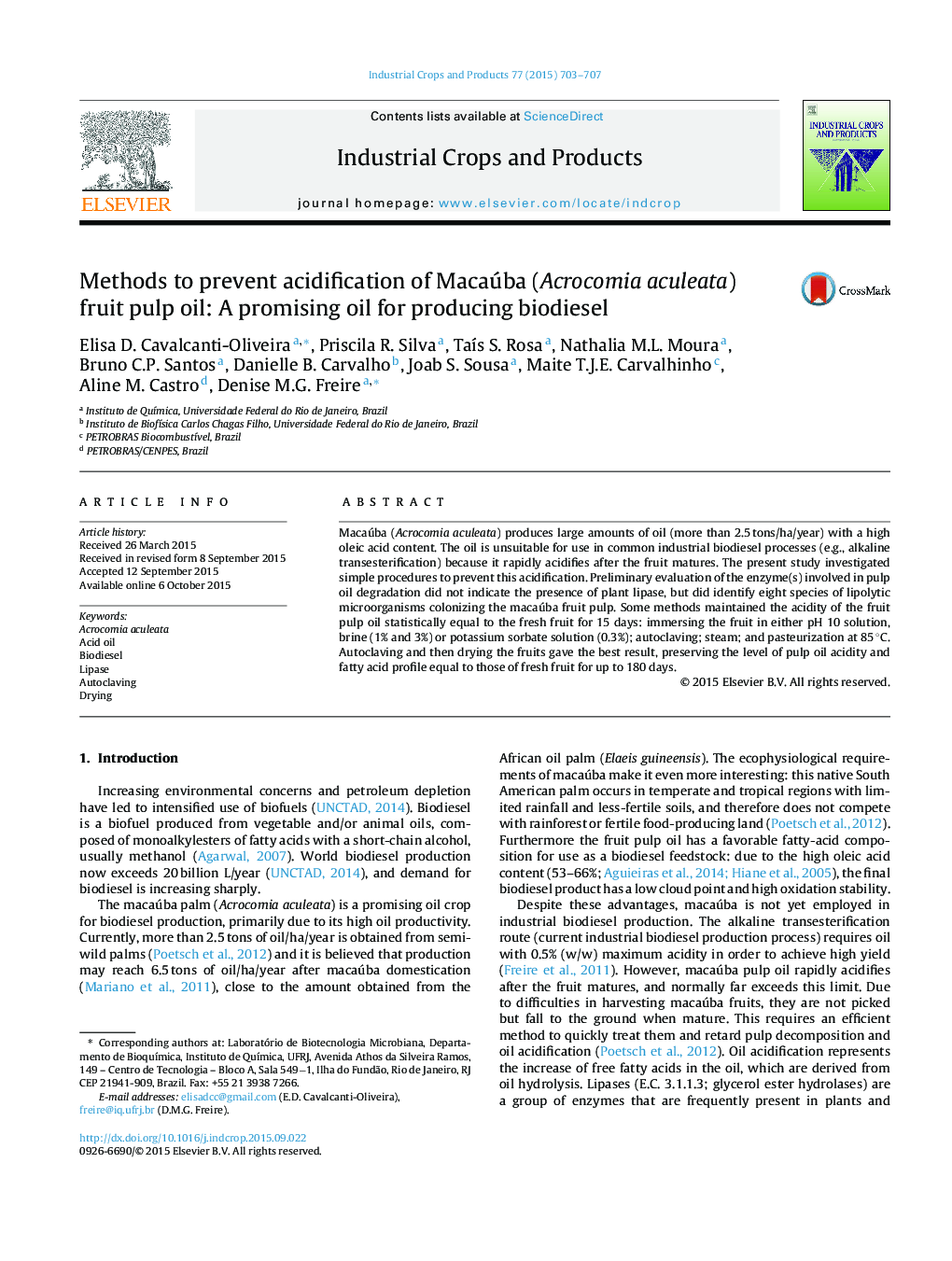| Article ID | Journal | Published Year | Pages | File Type |
|---|---|---|---|---|
| 4512618 | Industrial Crops and Products | 2015 | 5 Pages |
•Indication that lipolytic microorganisms which colonized fruit pulp are the cause of oil acidification.•Several simple methodologies to prevent the fruit pulp oil acidification up to 15 days of storage.•Methodology consisting at autoclavation plus drying the fruits was capable to preserve pulp oil acidity and fatty acid profile up to 180 days of storage.
Macaúba (Acrocomia aculeata) produces large amounts of oil (more than 2.5 tons/ha/year) with a high oleic acid content. The oil is unsuitable for use in common industrial biodiesel processes (e.g., alkaline transesterification) because it rapidly acidifies after the fruit matures. The present study investigated simple procedures to prevent this acidification. Preliminary evaluation of the enzyme(s) involved in pulp oil degradation did not indicate the presence of plant lipase, but did identify eight species of lipolytic microorganisms colonizing the macaúba fruit pulp. Some methods maintained the acidity of the fruit pulp oil statistically equal to the fresh fruit for 15 days: immersing the fruit in either pH 10 solution, brine (1% and 3%) or potassium sorbate solution (0.3%); autoclaving; steam; and pasteurization at 85 °C. Autoclaving and then drying the fruits gave the best result, preserving the level of pulp oil acidity and fatty acid profile equal to those of fresh fruit for up to 180 days.
